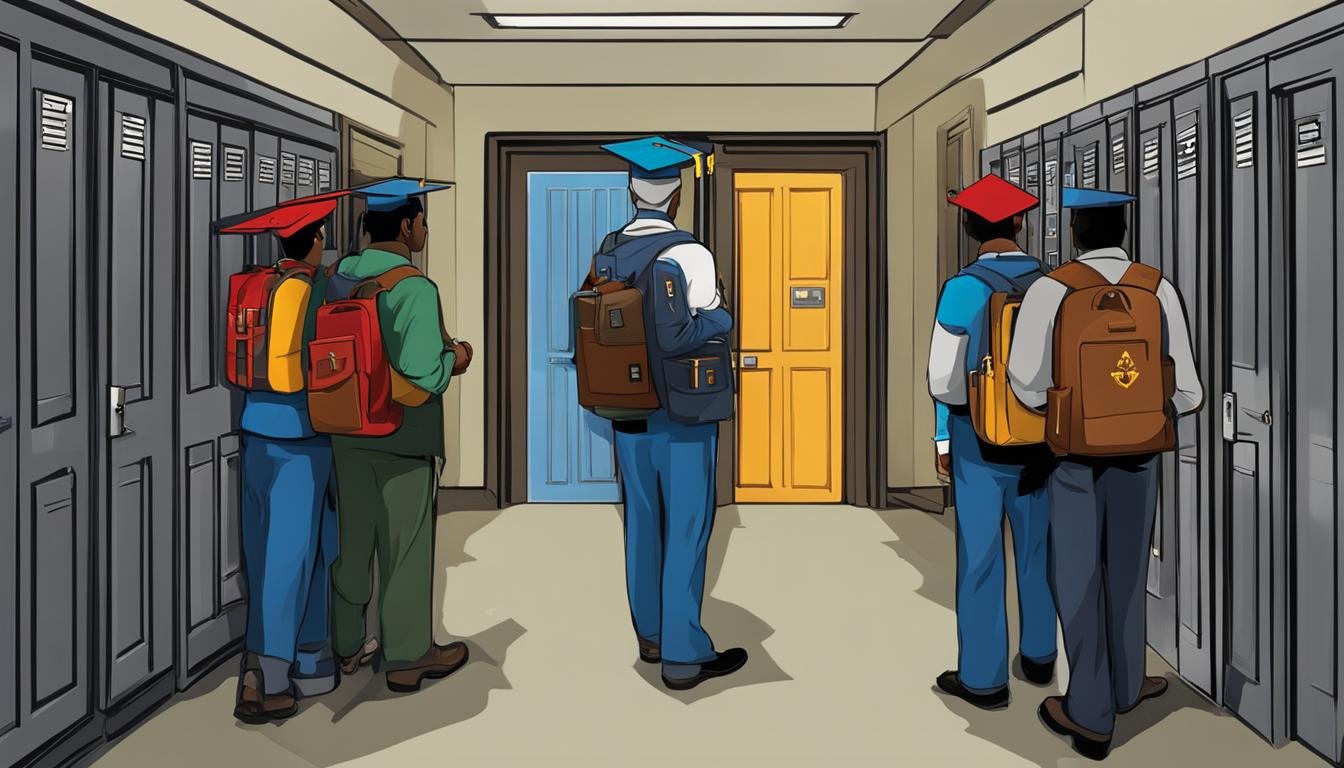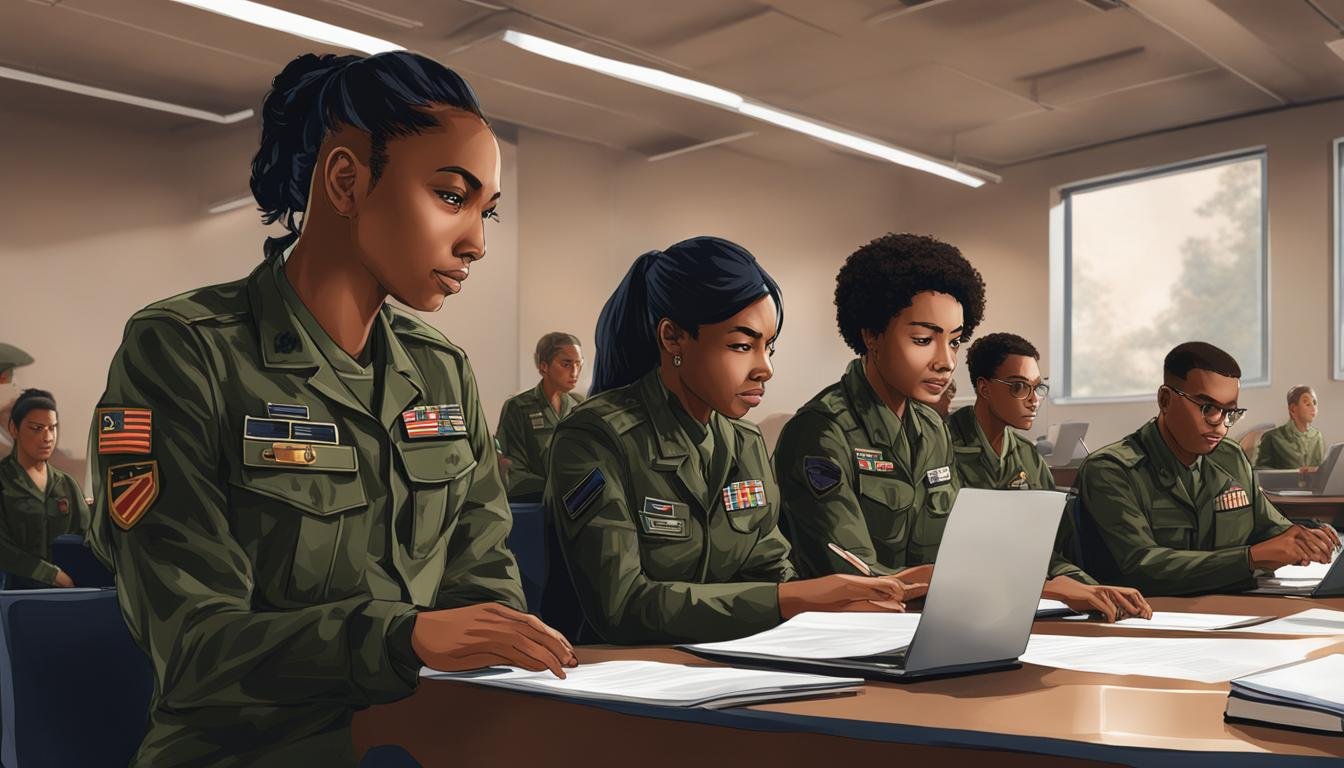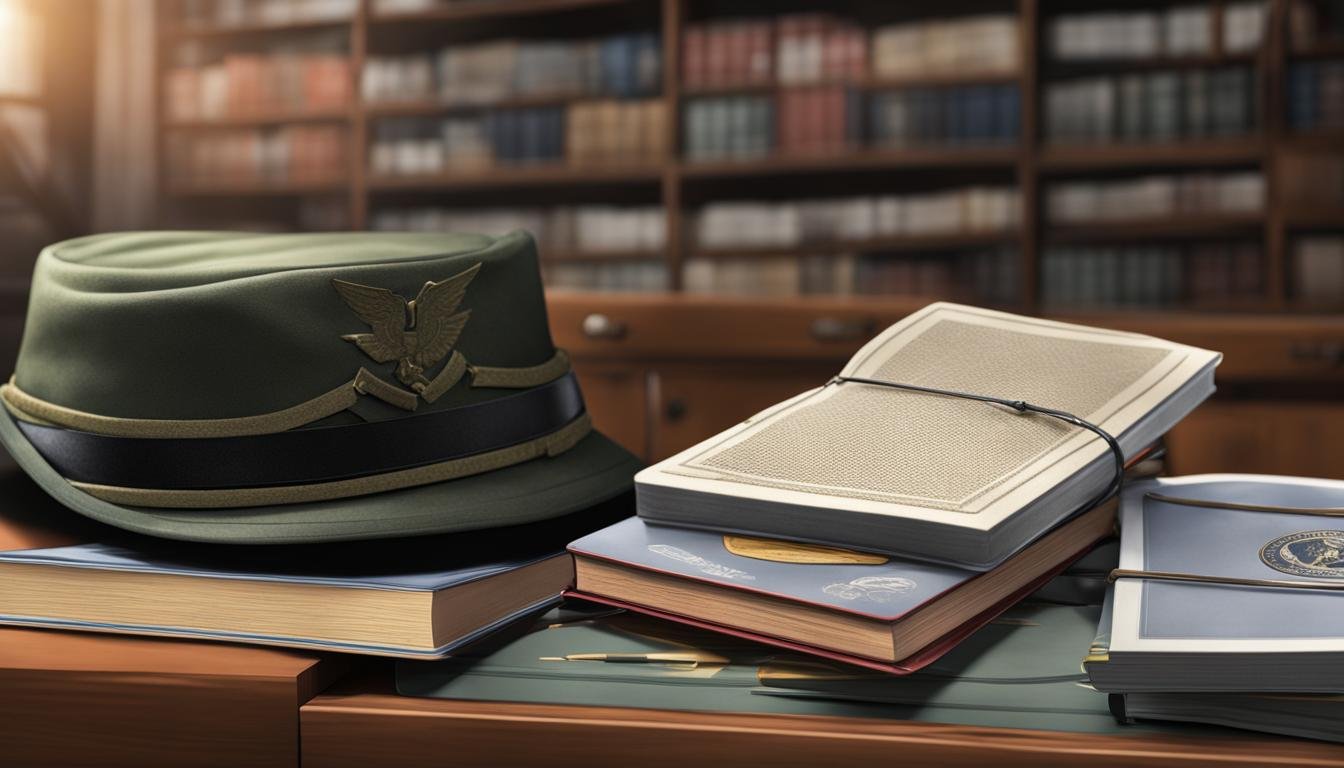Veterans who have earned college credits during their service have a unique opportunity to maximize their educational potential. By transferring their military training and experience into college credit, veterans can fast-track their education and pursue academic programs that align with their career goals. This article will explore the educational pathways available to veterans with college credits and provide insights into how they can make the most of their educational opportunities.
Key Takeaways:
- Earned college credits during military service can be transferred to civilian academic institutions.
- Veterans can obtain military transcripts to evaluate the credits earned and determine their transferability.
- VA-approved degree programs and veteran-friendly colleges offer tailored academic pathways for veterans.
- Academic programs and resources, such as the GEM program and flex courses, cater to the needs of veterans.
- Applying for tuition assistance and admissions is a crucial step in accessing educational benefits for veterans.
Academic Programs and Resources for Veterans
When it comes to pursuing higher education, veterans have access to a range of academic programs and resources tailored to their unique needs and experiences. These programs aim to provide veterans with the necessary support and opportunities to successfully transition into civilian life and achieve their educational goals. From specialized degree programs to flexible scheduling options, veterans can find a variety of options that fit their individual circumstances.
One notable program available to veterans is the General Education Mobile (GEM) program. This initiative connects students from the Community College of the Air Force (CCAF) to online regionally accredited institutions that offer general education courses. Through the GEM program, veterans can fulfill the general education requirements of their CCAF Associate in Applied Science (AAS) degree while gaining valuable knowledge and skills applicable to their chosen career path.
At Fayetteville Technical Community College (FTCC), veterans have access to a range of academic programs and resources designed specifically for their needs. FTCC offers courses that allow veterans to complete their CCAF degree requirements while also earning an Associate of General Education degree. Additionally, FTCC provides flex courses that accommodate veterans’ military responsibilities by offering customizable due dates and online learning options. These flexible scheduling options ensure that veterans can balance their academic pursuits with their other commitments.
| Academic Institution | Degree Programs |
|---|---|
| East Carolina University | Bachelor’s, Master’s, and Doctoral degrees |
| Excelsior College | Associate, Bachelor’s, and Master’s degrees |
| George Washington University | Bachelor’s, Master’s, and Doctoral degrees |
| Methodist University | Bachelor’s and Master’s degrees |
| Norwich University | Bachelor’s and Master’s degrees |
| Purdue University Global | Associate, Bachelor’s, Master’s, and Doctoral degrees |
| Southern New Hampshire University | Associate, Bachelor’s, Master’s, and Doctoral degrees |
| University of Charleston | Bachelor’s and Master’s degrees |
| University of North Carolina at Pembroke | Bachelor’s and Master’s degrees |
| Western Carolina University | Bachelor’s and Master’s degrees |
Furthermore, veterans can take advantage of partnerships between community colleges and universities that streamline the credit transfer process. Institutions like East Carolina University, Excelsior College, George Washington University, and many others offer various degree programs that align with veterans’ interests and career aspirations. These partnerships ensure that veterans can seamlessly transfer their credits and continue their education without unnecessary obstacles.
By exploring the academic programs and resources available to them, veterans can make informed decisions about their educational journey. Whether it’s through specialized degree programs, flexible scheduling options, or credit transfer partnerships, veterans have numerous avenues to pursue higher education while building upon the skills and knowledge gained during their military service.
Applying for Tuition Assistance and Admissions
To make the most of your educational opportunities, it is essential to familiarize yourself with the process of applying for tuition assistance and admissions. Tuition Assistance (TA) is a valuable benefit available to eligible military members, offering financial support for college courses.
To apply for TA, create an account on your service branch’s portal and follow the step-by-step instructions provided. Remember that each service branch has its own help line for TA-related inquiries, so don’t hesitate to reach out if you have any questions or need assistance.
Once you are enrolled in your chosen academic institution, you will need to complete the admissions process. This typically involves submitting official military documents, such as the DD214, ERB, Joint Transcript, ESR, or ORB, to the Veteran Affairs Certifying Official.
It’s important to note that the credits you earned through military training or coursework will be evaluated and awarded accordingly. To ensure a smooth transfer process, consider submitting your military transcripts, such as the Joint Services Transcript (JST) and Community College of the Air Force (CCAF) transcript, along with any other relevant documents for potential transfer credit.
Fayetteville Technical Community College (FTCC), for example, requires official transcripts from previous institutions and recognizes credits earned through the JST, CCAF, CLEP, AP, DLPT, and DSST. By following the admissions process and utilizing your educational benefits, you can embark on your higher education journey and take full advantage of the pathways available to you.



